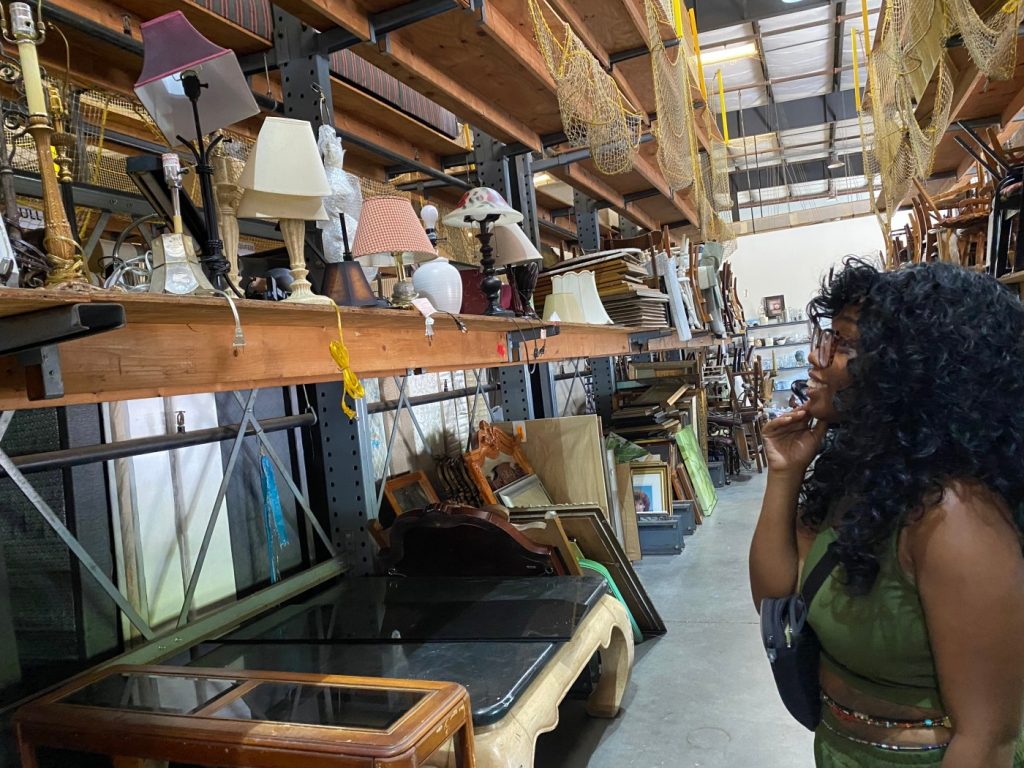Just a few months ago, Kat Williams was living with her three children, ages one, five and 13, in her car. Now she’s picking out furniture for a three-bedroom apartment that was “way more than I expected,” she said.
Williams and I met at a furniture and clothing bank in Central Florida called The Mustard Seed. Now in its 35th year of helping those who’ve suffered disaster or personal tragedy furnish their homes, the organization exists because people who have too much thoughtfully give it away — people like Linda Manzonelli, of Winter Park, Fla.
After reading my recent decluttering column, Manzonelli wrote to say, “Having too much is not everyone’s reality. We need to remember that there are those who have not much to decorate or clutter their homes with.”
Point taken.
Fifty years ago, Manzonelli was a newly divorced young mother who had only her bedroom furniture and a kitchen table and chairs, “so my child and I would have a place to eat and a place to study, since I had gone back to college.” It would be years before they got a hand-me-down sofa.
“Back then, there were no furniture banks,” she said. “When you have children, making a house or apartment into a home is especially important for everyone’s emotional well-being. That is why I will support this organization as long as it exists.” She urged me to visit the center.
I loaded my car with boxes of household goods I was clearing out — framed mirrors, lamps, a file cabinet — and drove to the center, where development and events manager Mehek Mirchandani showed me around the 20,000 square-foot warehouse filled with sofas, chairs, tables and mattresses. There were rooms dedicated to dishes and kitchen appliances and another for bedding and linens.
Williams was one of seven clients who came through the warehouse that day, referred by one of more than 100 agencies, from homeless networks to hospitals. Along with an agency referral, clients also need to have secured housing “with keys in hand,” Mirchandani said. Clients pay a $200 fee plus $150 if they need the furniture delivered. “We’re a hand-up not a hand-out.”
After a series of setbacks two years ago, Williams and her children had to move in with her mother. When that relationship turned, they became homeless. A community agency found the family temporary housing in churches while she “worked on getting my stability back,” said Williams, age 32, who works as a secretary at a hospital. Then she qualified for an apartment.
As we walked the furniture aisles, I asked what look she was going for. She lit up: “Bohemian,” she said. “I love color. I want a house full of color.”
Thanks to a lot of thoughtful donors who let go of what they didn’t need, Williams is about to get just that.
Mustard Seed executive director Kathy Baldwin says similar furniture banks are flourishing all over the country thanks to greater awareness. There are banks, for example, in Walnut Creek, San Rafael and Los Altos, and more listed at https://furniturebanks.org. Meanwhile, here are some ways you, too, can clean house and make a difference:
Ditch the storage unit. The U.S. has 53,000 storage facilities. That’s more than all the McDonald’s, Starbucks, and Subway stores combined. Rather than spend hundreds of dollars a month storing furniture you don’t need, help a struggling family furnish a home and save the money.
No mattress should go to waste. Because mattresses can have an ick factor, many people don’t think of recycling used ones. However, no mattress should end up in landfill. At The Mustard Seed, mattresses still in good condition are sanitized and made available to clients. Mattresses that are in poor shape get broken down and sold to recyclers, with mattress foam and filler turned into carpet padding and springs sold as scrap metal.
Related Articles
Home decor: A dinner party prompts a dining room refresh
Home decor: When is an area rug too small and how to fix it
Home decor: Wallpaper is making a comeback — and it’s not just flowers and berries
At Home: 6 pro tips to help you lighten up the clutter this spring
Home decor: To enliven dated decor, try taking a risk
See your belongings through new eyes. Ask yourself how many candlesticks, sheets, baskets, etc. do you need? Keep your top three, and let others benefit from the rest. According to Mirchandani, the top five most needed items are twin mattresses, cutlery, pots and pans, fitted sheets of all sizes and coffeemakers.
Don’t let transportation stop you. Most donation centers will pick up large items from your home at no charge.
Consider the upside. Besides helping other families, letting go means you have less stuff to store, clean and deal with — and charitable donations can net you a tax deduction.
Join columnist Marni Jameson on May 23 for a free, virtual event, “Rightsize Your Life and Live Well Now.” Register at https://extras.mercurynews.com/events/.


